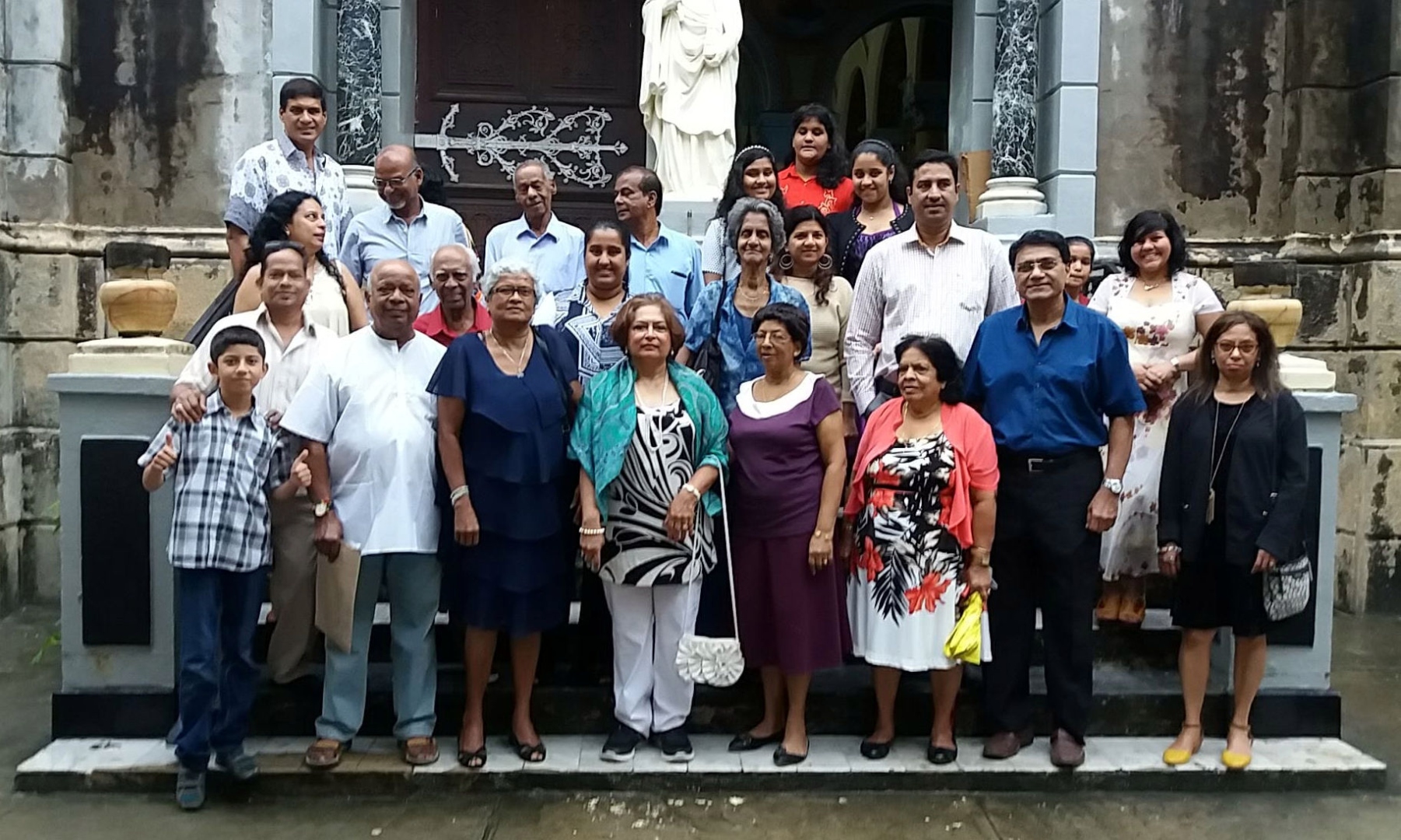GLOBAL GOENKARS IN EAST AFRICA

A group of Goans gather after Sunday Mass at St Joseph's Cathedral in Zanzibar.
LONDON
Goans may have declined sharply from an estimated 3,000 in the early 1960s to barely about 90 at present, but the small Goan community in Zanzibar continues to maintain its culture and traditions.
Since it was founded in 1904, Goans changed the name of their association five times from The Goan Association to Gremio Indo-Lusitano, Gremio Goano and Goan Institute, before it was finally renamed as the Zanzibar Institute.
Herbert Fernandes, who is presently based in the UK, has a close attachment to Zanzibar, as his late father, Julius, had been a prominent member of the Goan community there.
“My father was on the committee when the Goan Institute celebrated its golden jubilee in 1954. At some time, he was president of the Goan Community and also President of The Goan Institute. They were two separate entities. The Goan Institute was a social and sports club with a clubhouse, but not all Goans were members of the institute. The Goan Community represented all and was recognised as such by the state,” said Herbert.
Narrating the presence of Goans in Zanzibar, Herbert said he recalled visiting an old cemetery of a few graves to bless on All Souls Day as a young altar server.
“They were Goans according to the headstones dating to the late 1800s,” said Herbert.
“Zanzibar was the Gateway to East Africa for many, including Livingstone and Speke, and of course, our Goans. Which is probably why, one of the oldest Goan associations was set up in Zanzibar.”
Herbert said the Goan community had three focal points: the Goan Institute, the Catholic Church and the Convent School.
“Even the Sultan's family attended the school which had children from other communities too. The town is called Stone Town where most Goans lived,” he said.
Herbert said Zanzibar was ruled by an Arab Sultan for centuries from Oman until a revolution in 1964, where a number of people, including some Goans, lost their lives.
Commenting on the present status of the Goans in Zanzibar, Herbert said there are around 90 Goans living in the place.
“There is no active club at the moment, but Goans meet to celebrate their Goan traditions in the church hall, restaurants, hotels and in houses of Goan families.”
“Once a year, the Feast of St Anthony is celebrated at the village church in Machui. Most Goans attend, and then they retire for a picnic at a beach hotel. The whole celebration is borne by a Goan family. This tradition goes back many many years,” said Herbert.
A number of Goans have prospered in Zanzibar over the decades and one of them even decided to replicate Zanzibar’s architecture in Goa.
“Dr M F de Albuquerque, who was the founding president of the then ‘The Goan Association’, built his house in Anjuna to resemble the Sultan's palace in Zanzibar,” Herbert added.
Wolfango Dourado (1935-2017) was one of the most prominent Goans in Zanzibar well-known in Administration and Law. He was a Zanzibar’s first Attorney General.
According to Wolfango Bosco Martins (Bulu), a successful entrepreneur in Zanzibar who was named after his godfather, Wolfgango Dourado, the Goan population in Zanzibar was over 3,000 in 1963-64 at independence and around the revolution.
“Now, there are barely about 87 members of the Goans community living in Zanzibar,” said Martins.
“Among them, two brothers own hotels, three are travel agents, two own shops, one has a hardware shop, one works for the government shipping, and very few youth work for some private companies. Many elderly, including me, are retired.”
“Earlier, some men, including my late father, were famous as tailors. However, none of us took up the trade and now, there are no Goan tailors left in Zanzibar.”
Martins said the Goans may be few but they make the best of celebrations like New Year, Carnival, Easter, Feast of St Anthony, Goa Day, Feast of St Francis Xavier and the Christmas Tree Party.
“Although we don't have our own institute, we hire private halls or private beach hotels for these events. Most of Goans attend the first Mass (English) on Sundays and after Mass, gather in front of the Church,’ he said.